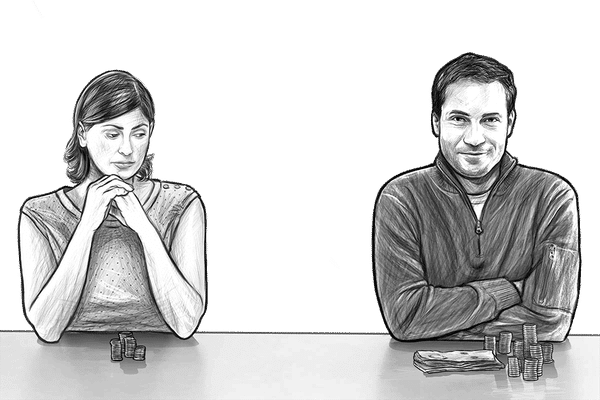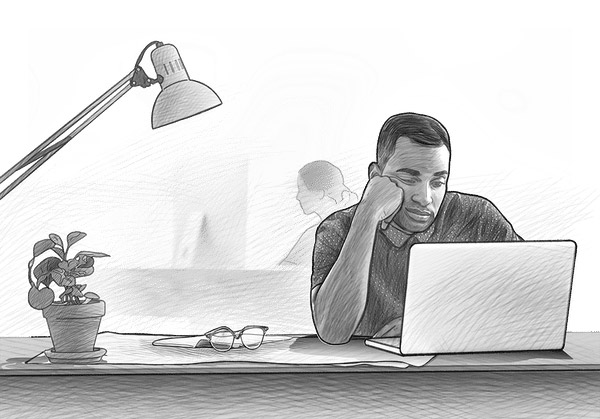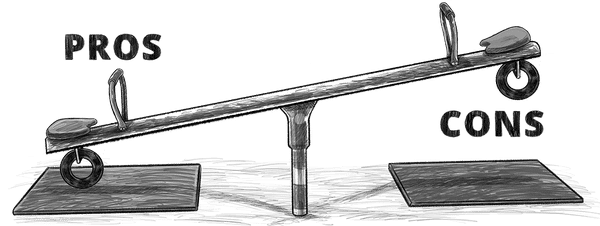Setting Expectations
18 December 2022

Hi, The Investor’s Podcast Network Community!
It’s been a busy week, and the holidays are just around the corner. Let’s relax with some light reading and thought-provoking insights.
Today, I want to discuss expectations, in another weekend edition of our We Study Markets newsletter.
Let’s do it 😁
Understand the financial markets
in just a few minutes.
Get the daily email that makes understanding the financial markets
easy and enjoyable, for free.
QUOTE OF THE DAY

“Blessed is he who expects nothing, for he shall never be disappointed.”
BROUGHT TO YOU BY
Shop online for perfectly aged steaks, trimmed by master butchers, and backed with a 100% money-back guarantee from Omaha Steaks.
Visit OmahaSteaks.com for 50% off sitewide, plus We Study Markets subscribers get an additional $30 off with the promo code WSB at checkout!
To get that EXTRA $30 OFF your order, don’t forget to use code WSB at checkout!
THE MAIN STORY: LOWER YOUR EXPECTATIONS
Overview
As the popular saying goes, “comparison is the thief of joy.”
When we compare ourselves to others, we implicitly set expectations for our lives that aren’t always attainable and serve to make us appreciate what we have less.
For most of us, there are almost certainly people who have it worse than we do. From chronic disease to poverty, there’s no shortage of obstacles in this life.
Despite facing greater challenges, how do these seemingly less fortunate folks find happiness?
Well, to start, they lower their expectations.
High expectations are bad?
Take the renowned scientist Stephen Hawking, who was paralyzed at age 21 due to a motor-neuron disease.
Asked how he maintained such a good mood, he quipped, “My expectations were reduced to zero when I was 21…Everything since then has been a bonus.”
Surprises
Our thinking today was inspired by the excellent Morgan Housel.
He begins by explaining that what makes any joke funny is the surprise. The setup takes you down one path, and then the punchline comes from a totally different, unexpected direction.
This insight extends well beyond comedy. We’re excited most by surprises.
Finding that gift you’ve wanted all year in a carefully wrapped present from a loved one on your birthday is exhilarating.
Sneaking a peak and seeing that same gift two weeks in advance is much less thrilling when your birthday comes around.

Gaps between expectations and reality often cause us to experience emotions most passionately, from happiness to fear, amusement, or anger.
Becoming famous when you never expected to be is invigorating. Losing that fame and returning to the ‘normal’ life you’d previously thought yourself destined for is incredibly painful.
You’re cursed to be less happy because, upon becoming famous, you may internally set the expectation for that to continue indefinitely.
It’s a matter of perspective
To someone in food-starved regions in Africa, the simple abundance in the U.S. is a blessing. To most Americans, we take it for granted and even complain about the options available.
For athletes, winning that first championship is far more meaningful than the second.
For students, acing an exam in your hardest class for the first time is a moment of tremendous pride. Do it again, and your enthusiasm wanes as it becomes part of your expected reality.
Instead of being pleased by a just satisfactory exam score as you would’ve been initially, now you’re disappointed to have underperformed relative to your new reality and expectations.
Going from rich to poor can be more painful than being poor is by itself. If you never expected anything better, you’re not disappointed by your current circumstances.
But if you planned to travel to the Caribbean yearly on vacation and now can’t even make your car payments, well, life will feel pretty awful for you.

Lower expectations lead to success?
Of course, these emotional determinants all stem from expectations that we subconsciously set or are imposed on us by friends, family, and peers.
There’s a reason that middle children have been found to be the most successful, best behaved, and most likely to maintain strong relationships relative to their siblings — there are fewer expectations set on them, especially compared to the first child.
52% of U.S. presidents are middle children, alongside Bill Gates and Martin Luther King, Jr.
And no, I’m not a middle child espousing their excellence. I’m the third with two older brothers.
Expectations are invisible but pervasive
Housel argues, “Actual circumstances don’t make much difference in all of these cases. What generates all the emotion is just how big the gap is between expectations and reality…Everyone, everywhere, doing almost any task, is just in pursuit of finding some space between expectations and reality. But that’s so easy to overlook.”
While we may guard tangible possessions where we explicitly know their price, such as jewelry, phones, or cars, the real value of less concrete things like our eyesight, relationships, and freedom may remain hidden from us.
Housel believes that the same is true for our expectations despite our perception of happiness relying on them.
As we know from investing, expectations drive everything. Stocks tend to go up when they report earnings above consensus estimates and fall when they report below.
A sad reality
He tells us to imagine a life “where almost everything gets better, but you never appreciate it because your expectations rise as fast as your circumstances.”

This, to me, perfectly captures the paradox of modern living.
Billions of people have been lifted out of poverty in the past few decades, you can go to a grocery store and eat fruits from any corner of the earth, and your phone can instantly communicate with anyone.
However, so many of us remain unhappy.
As always, Charlie Munger says it best: “The first rule of a happy life is low expectations. If you have unrealistic expectations, you’re going to be miserable your whole life. You want to have reasonable expectations and take life’s results, good and bad, as they happen with a certain amount of stoicism.”
Takeaways
This is not all to say that we should remove all expectations.
Expectations are a powerful motivating tool that can compel us to improve.
The point is not to allow the expectations that define your happiness to be invisible.

Practice gratitude, reflect on the gaps between expectations and reality that impact you the most emotionally, use your expectations intentionally to spawn positive change in the things you can control, and lower your expectations for things you can’t control.
Enjoy the rest of your Sunday.
Dive deeper
You can find Morgan Housel’s full article here.
How are expectations positively or negatively impacting your life?
SEE YOU NEXT TIME!

That’s it for today on We Study Markets!
See you later!
If you enjoyed the newsletter, keep an eye on your inbox for them on weekdays around 6pm EST, and if you have any feedback or topics you’d like us to discuss, simply respond to this email.








